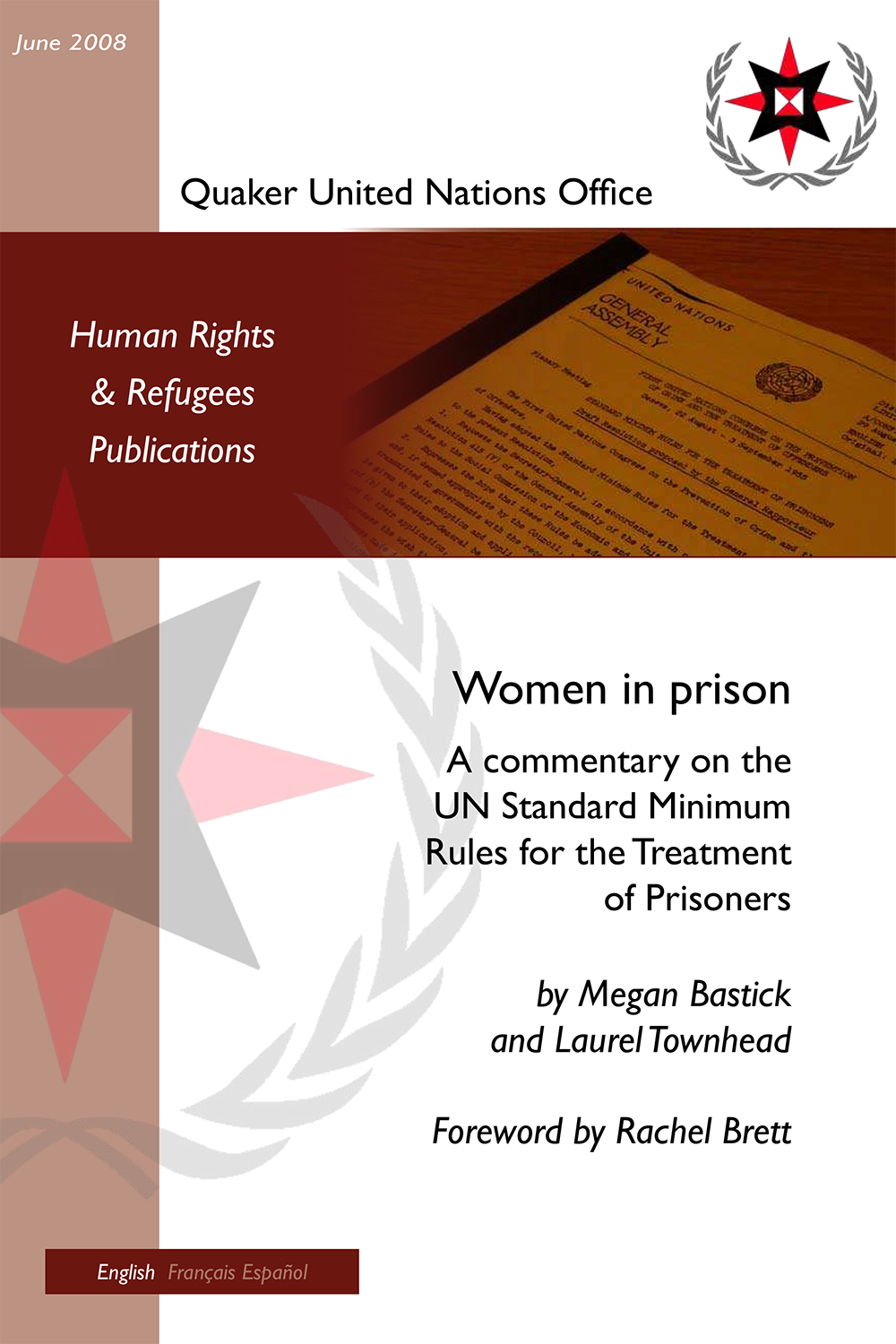In 2003, the Quaker United Nations Ofice (QUNO), Geneva, began research on women in prison. The aims were to better understand why increasing numbers of women are being imprisoned, identify the conditions in which women prisoners are kept around the world, and draw attention to the particular impact that imprisonment has on women as opposed to men, with a view to encouraging greater understanding and the development of appropriate responses.
In July 2004, QUNO published a preliminary paper, Women in Prison and Children of Imprisoned Mothers. This identiies many dificulties particular to women who are imprisoned, and illustrates that they are not limited to certain regions, or to “Developed” or “Developing” countries. All over the world, women in prison suffer from intersecting discriminations, and are largely ignored in prison systems designed for men. Important elements of the increasing UN attention to women prisoners were drawn together in QUNO’s publication Women in Prison & Children of Imprisoned Mothers: Recent Developments in the United Nations Human Rights System (April 2006). In February 2007, QUNO addressed the issue of Pre-Trial Detention of Women & its impact on their children.
One of the signiicant differences between male and female prisoners is the issue of children. Many female prisoners are the sole or main carer of children. In March 2005, QUNO published a study by Marlene Alejos, Babies and Small Children Residing in Prisons.
This examines the international human rights framework applicable to young children living in prison with their mothers, identiies some good practices, and proposes draft ‘Suggested guidelines for drafting legislation, regulations, policies and programmes regarding babies and small children residing in prisons’. In April 2007, QUNO produced a paper exploring The Impact of Parental Imprisonment on Children more generally, identifying the issues which arise at different stages in the criminal justice process; and in April 2008 presented a more speciic exploration relating to children being permitted to live in prisons, and recommendations to ensure that the needs and best interests of the children are considered, in Children Imprisoned by Circumstance. These publications and others are available on our website (www.quno.org); most in French and Spanish as well as English.
